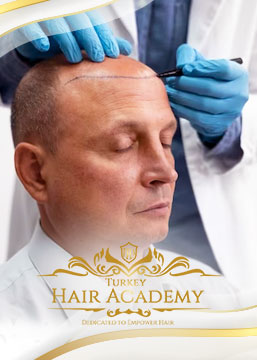Contents
Are there any medical procedures that need to be done before hair transplantation?
A thorough examination should be conducted to evaluate the speed, pattern, and causes of hair loss, and any underlying medical conditions should be identified and treated. In addition, hormonal tests should be conducted for women to investigate hormonal conditions that may cause hair loss.
The person’s health status is also important for hair transplantation. Blood tests, blood pressure measurements, and heart function tests should be performed for health assessment. In some cases, based on the health assessment, it may not be suitable to perform the transplantation.
The medications you are taking before transplantation are also important. If you are using blood thinners, you may need to stop these medications before the hair transplantation procedure.
If you would like to listen to our content
Are There Any Conditions That Prevent Hair Transplantation?
There are barrier conditions, and the reason for these conditions is generally due to the person’s health status.
In hair transplantation, not only the area where the hair follicles are harvested should be healthy, but also the areas where the follicles will be transplanted should be healthy. If there are skin diseases, such as infections or fungi, in the area to be transplanted, they should be treated first. People with skin problems such as eczema or psoriasis should also treat their skin problems as they have a high risk of infection after the hair transplantation procedure.
Also, patients who have cancer may not be suitable for hair transplantation. People undergoing cancer treatment are also at high risk of infection during the hair transplantation procedure, so they should discuss with their doctors whether they are suitable for the procedure based on their health status.
Can Hair Transplantation Be Done While Hair Loss Continues?
Yes, it can be done. However, it is generally recommended to perform the procedure after hair loss has stopped. The reason for this is that better results can be obtained with hair transplantation while hair loss is not continuing.
Hair transplantation can be performed not only on completely bald areas but also on sparse, thin areas. For the process called densification, it is not necessary to wait for the hair to completely fall out, so hair transplantation can also be performed while the hair is still falling out. However, if the old hair continues to fall out after transplantation, a second hair transplantation session may be required in the future. It is important to protect existing hair by using the correct methods during this procedure.
 Is It Possible to Completely Stop Hair Loss?
Is It Possible to Completely Stop Hair Loss?
No, it is not possible to completely stop hair loss. However, medical techniques that slow down this process can be used. Hair loss can be slowed down with techniques such as ozone therapy, PRP, and laser therapy.
Do Transplanted Hairs Fall Out?
After the operation, hair follicles can remain dormant or fall out in order to adapt to the newly transplanted area. In the first 5 weeks of the healing period, there is a sudden shedding called shock hair loss. However, this is a temporary shedding. Stronger hair replaces the hair that falls out over time. Shock loss should not cause anxiety in our patients. It is a natural stage of the healing process.


